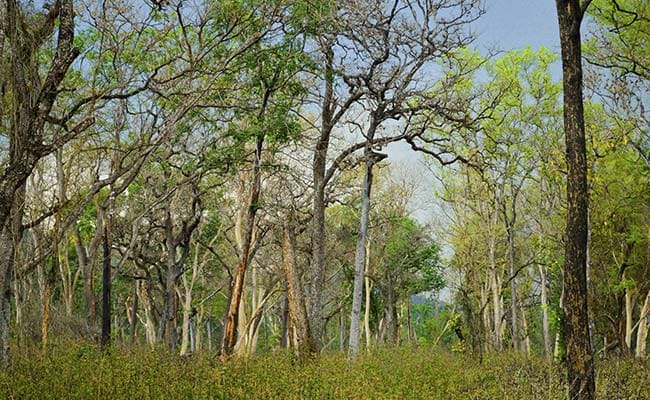
The Chipko movement was a turning point in forest conservation efforts in India. Chipko, signifying 'embrace or hug', was the strategy of hundreds of villagers -mostly women- in Chamoli district of Uttarakhand, to save the forest cover on the Garhwal Himalyas. Reckless felling of trees on the hill slopes was having a devastating effect on the livelihood of the villagers. The floods in 1970, when the Alakananda River broke its banks, led to massive landslides that blocked the river and washed away hundreds of hamlets downstream. Widespread protests followed in the early 70s, when villagers led by Chandi Prasad Bhatt, a Gandhian, literally embraced the trees to save them from the woodcutters' axe. Google on Monday, commemorated the 45th year of the Chipko movement with a beautiful doodle showing four women forming a human chain around a tree.
Top 10 points of the Chipko movement
In the early 70s, the government decided to give a portion of the forests in Alakananda valley to a sports company, which needed a particular variety of wood for manufacturing their products.
Angry villagers of Gopeshwar in Chamoli, whose livelihood depended on the forests, opposed the government's decision.
The forest department had earlier prohibited the villagers from felling ten trees, for making farming tools but gave permission to Simon company, to cut 300 trees.
The tipping point came when government on January 1974, announced the auction of 2,500 trees, overlooking the Alaknanda river.
In March, when the lumberjacks arrived, a girl who saw them informed the village heads. Women in large groups came out and stopped the lumbermen by hugging the trees despite being threatened.
The women put up a brave fight and kept night-long vigils for weeks until the woodcutters retreated.
The movement was unique as some of the top leaders of the Chipko Andolan were local women - Gaura Devi, Sudesha Devi and Bachni Devi.
Chandi Prasad Bhatt, Sundarlal Bahuguna, Govind Singh Rawat, Dhoom Singh Neji and Shamsher Singh Bisht played critical roles in galvanizing the villagers and gave a direction to the movement.
The Chipko movement had a far reaching impact on the environmental laws of the country.
Sunderlal Bahuguna appealed to the then prime minister Indira Gandhi who stopped the felling of trees.

